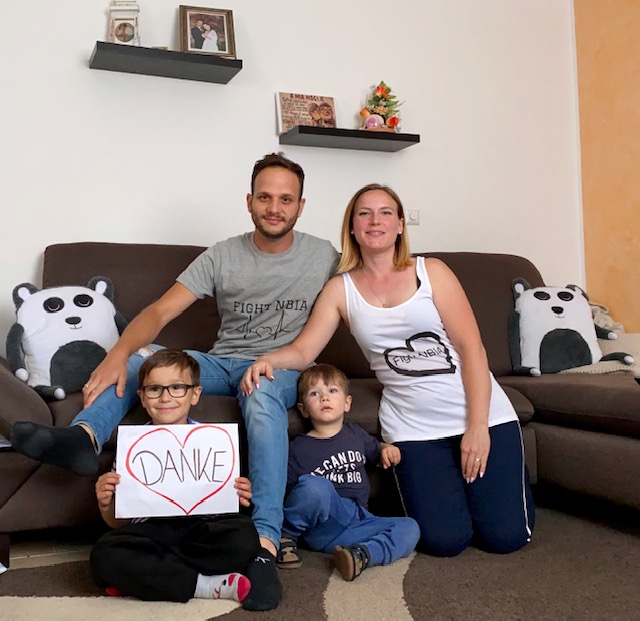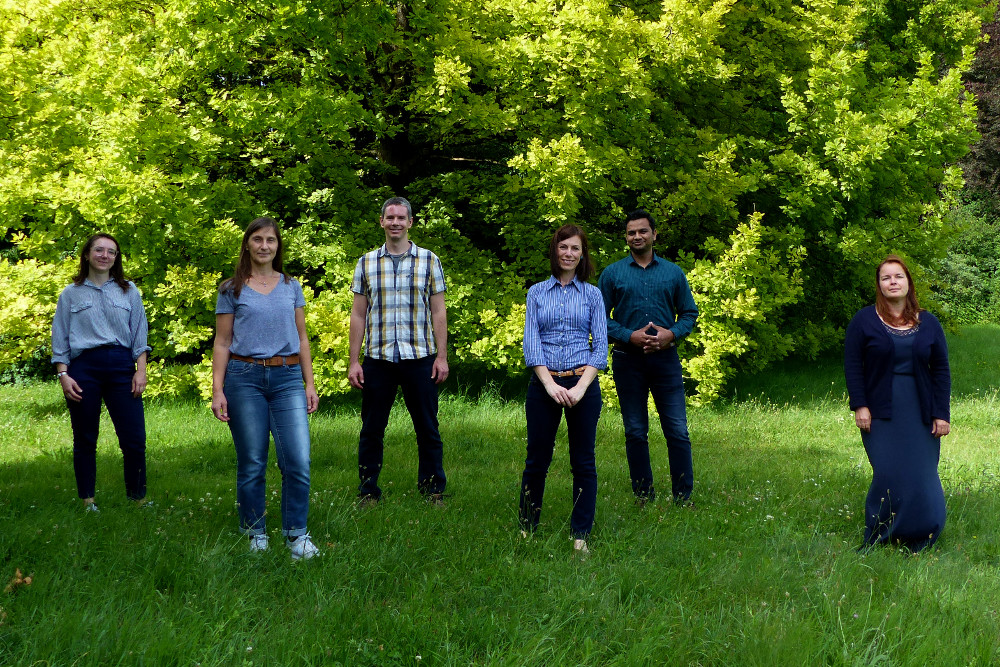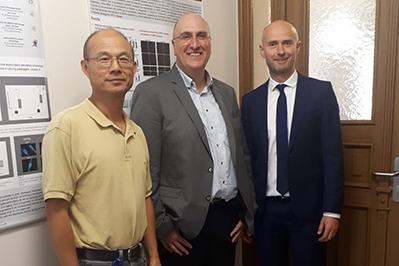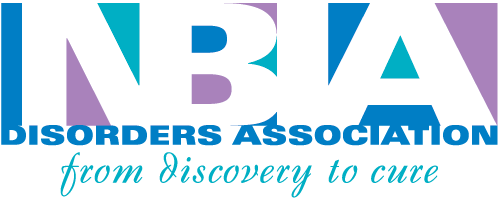Spontaneous donation campaign achieves more than 15.000 € for PKAN research
Spontaneous donation campaign achieves more than 15.000 € for PKAN research
Last year, the Bianchi family was diagnosed with PKAN for their son Giulio, who is now 3 years old. The parents then launched a fundraising campaign for PKAN research via Paypal and a Christmas card campaign in their private lives and are raising awareness of their youngest son's illness and of Hoffnungsbaum e.V. and to raise awareness.

Parents Tony and Melanie Bianchi with Leonardo and Giulio (from left to right)
Friends and acquaintances, as well as strangers touched by Giulio's fate, made numerous donations to the PKAN research fund as part of the Paypal campaign. Hoffnungsbaum e.V. In a short time, more than €10,000 was raised. Giulio's parents also sent the Christmas cards that Hoffnungsbaum e.V. sent to all NBIA families last year for a fundraising campaign among their relatives and friends, raising a total of €5,000 for research into Giulio's disease.
Although several therapeutic options are or have been under investigation, no drug or other therapy has yet been found that could stop the progression of this severe progressive disease or cure PKAN. PKAN occurs quite frequently as part of the very rare NBIA diseases, predominantly affects children, adolescents and young adults and is widespread worldwide.
The family has also published an Instagram page at: https://www.instagram.com/love_giulio/
If you would also like to donate to PKAN research, you are welcome to do so with the reference: "PKAN" or "Giulio" to the donation account of Hoffnungsbaum e.V..




